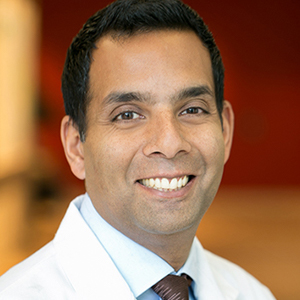Engaging with the Media During a Pandemic


| Its been well known to many of us in Geriatric Medicine that as COVID-19 emerged – it would most negatively impact the patients we serve. While some of us expected that those in nursing and retirement homes would be at risk, we don’t think anyone ever imagined that Canada’s pandemic experience would evolve to have these care homes be the centre point. With everyone wanting to understand this issue better – it was only a matter of time before the media, hungry for answers, would start looking to geriatricians for insights. Choosing to engage with the media is a personal decision. It’s not a requirement of the Royal College, our hospitals, or our academic division, but it is recognized as one way we, as academic physicians, can impact the broader public discourse and, in some cases, policies as well.
While few of us formally do television or newspaper interviews, many division members are active users of social media on platforms such as Twitter. Many division members frequently post original content and support their colleagues within the division and more broadly with ‘likes’ and ‘retweets’. This form of media is not only more accessible to everyone, but it may also be more comfortable since we are in charge of what we say, and what views or messages we lend our support for. Of course, depending on what we say or support, we know there may be a risk of criticism, and so we need to be prepared for that as well. The two of us have actively participated in more formal television, radio and newspaper interviews for a few reasons – but principally to disseminate and amplify important messages about the health and wellbeing of our patients and their caregivers during the COVID-19 pandemic. We also aim to provide a clear voice from those who understand a topic well to ensure an objective and balanced view is made available. For those of you curious about engaging with the media, we have compiled these ten insights based on our experience. First, we only accept a media request if we feel comfortable with the request, think we have something to contribute and understand the topic well. If we don’t – we try and direct the request to another colleague who may be better able to respond. If you are responding to a request and plan on using your hospital and/or university affiliation, it is a good idea to alert the respective communications department so they are aware. Second, come prepared. Make sure you understand the format of the request and the audience you will be speaking to. Consider asking for a list of questions or their topic of conversation in advance. This will allow you to prepare, and also confirm if this is the right interview for you to do. Sometimes reporters are happy for you to simply write your answers and communicate via email – which can allow you to have someone else look over your answers. Third, be concise and stick to your key messages – especially on live television or radio (where they cannot edit or shorten your responses) try and explain your ideas and respond to questions in the least amount of words. Also, avoid jargon and technical language, and when this is required, be sure to explain what you are talking about in laypersons’ terms. Fourth, we always try and keep things objective and positive. While media outlets may try and ask you to say negative things – we try and keep our comments related to the situation – ‘it is tragic what is happening in nursing homes” and “we agree that more needs to be done.” When offering to be critical, be balanced. Speak to what has gone well, but what could need improvement and how you think things could get us closer to the objective. Fifth, it helps when you speak about what you know and what you would do in your own practice. “I can’t comment on what went on there, as I wasn’t there or we still don’t know exactly what happened,” but “in my setting – or with my patients this is how we usually approach things.” Using examples makes whatever you are talking about more relevant and relatable. Sixth, in a fast-evolving situation like a pandemic, be transparent about the limitations of your knowledge and expertise. It’s ok when you say – that “you don’t know” in response to a question – as you are not an expert on everything. It’s much better than saying ‘no comment” as that looks like you are hiding something. Seventh, sometime journalists will pester you to say something about something you don’t really want to or feel capable of discussing – i.e., “don’t you think the government was wrong in not acting more quickly?” Here is where you can “pivot.” Start by acknowledging the question and then pivoting to an answer you want to give: “I am not sure if the government could have acted more quickly to protect nursing homes, but what I can say is that I am happy they have taken these actions, and here are some more I think they should consider.” Eighth, since media is not something most of us regularly do, we can all use some advice and training. Consider asking your communications team at your hospital for training and advice. It is also good practice to share your completed media engagements with members of the communications team for constructive feedback and advice – you can always get better. Finally, consider reaching out to members of our division who are engaged in media for some on-the-ground pointers and tips. Ninth, in the words of Dolly Parton, “if you want the rainbow, you have to put up with the rain.” When you put yourself out there publicly, especially during a pandemic where emotions and stress are running high, you will undoubtedly never please everyone. Be prepared and willing to accept (and even respond to) negative reactions and feedback to your media appearances. Tenth, keep track of what you do. When this is related to the work you do, the level of impact can be at the local, national or even international level based on the audience. Any media you do may also be considered for inclusion in divisional, departmental, faculty and other newsletters as well. Samir Sinha and Nathan Stall |
